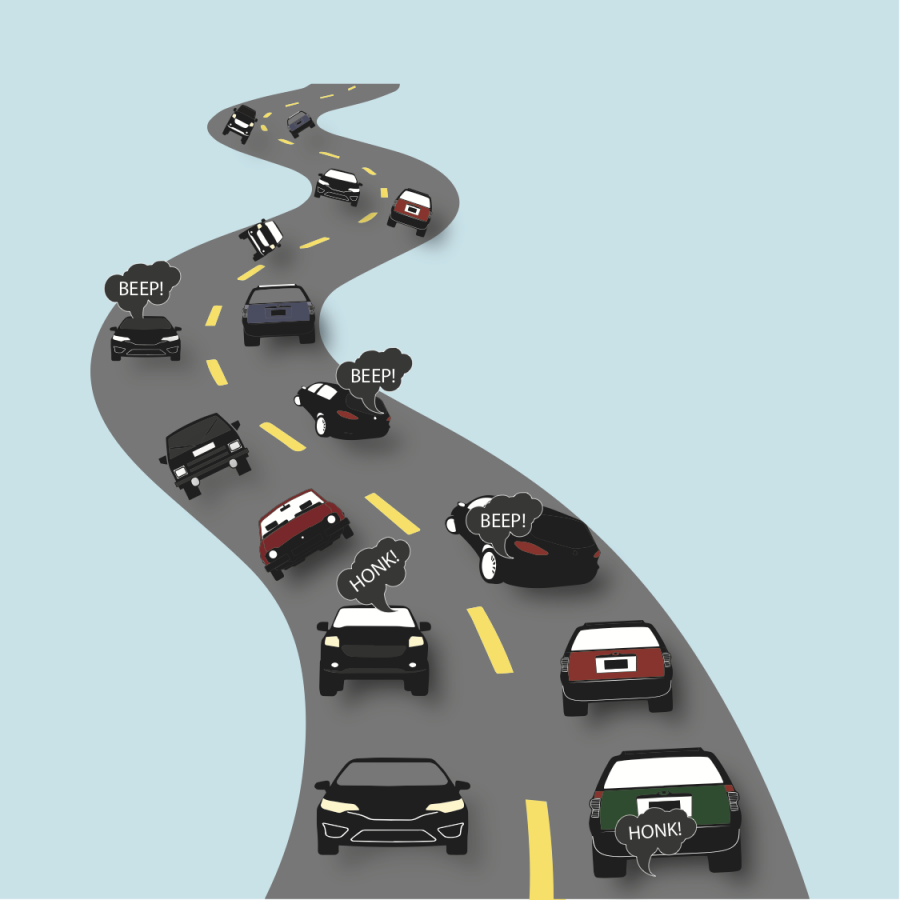Opinion | More public transit can benefit us all
March 9, 2020
The United States is a country built upon the automobile. Of course, this is a relatively recent invention, just over a century old. But in that time, it has shaped our cityscapes and our national infrastructure in a way that nothing else has.
For this reason, we have, for lack of a better phrase, a “car culture” in America. This primarily arose after the economic boom following World War II. For the first time in our history, most Americans had a disposable income and mass production was feasible in a way like never before. This meant that, as falsely promised by Herbert Hoover 20 years earlier, Americans could finally have “two cars in every garage.”
For many Americans of the silent and baby boomer generations that grew up in the 1950s–1960s, this meant that they could drive when they turned 16 relatively often. This, coupled with the growing suburbanization of American cities, necessitated driving as a daily ritual. Through this, the act of driving became more than a task, but ascended to a place of higher consideration and became a cultural touchstone for a generation.
“Cruising” became a popular pastime in the ensuing years, as popularized by films such as “Greece” and “American Graffiti.” To the younger generation of Americans, the ability to drive represented freedom and openness that could only exist in fantasies up to that point.
But the blessing of the automobile was also a curse. As we’ve come to find, in the last 60 years, individual cars have many adverse effects such as pollution, increased risk of vehicular death, traffic congestion and lack of exercise. This is why the question needs to be asked: Do we really need to drive as much as we do?
Get The Daily Illini in your inbox!
Most countries drive less than the U.S., and it is entirely possible to revert to our previous way of living. Of course, America has some unique issues that set it apart, but proper bus systems and expanded train infrastructure could greatly benefit American citizens.
Mass transit is cheaper, safer and less wasteful than driving and provides users with an opportunity to get some exercise and meet new people within their communities. Right now, only cities with populations over 50,000 are required to provide some kind of public transit, and even then it is often abysmal at best. Here in C-U, we have it pretty good in comparison to most cities of our size. Unfortunately, many cities with populations around 100–200 thousand have inferior public transit options available. Even some major cities could have much better bus and train coverage.
If people stopped driving, they would save money spent on insurance, car payments, gas and general vehicle maintenance. The cost of these things combined, plus the threat of an accident or having to replace your car, are far more expensive than a yearly bus pass.
If cities with smaller populations, perhaps around 20,000, also offered public transit, it would be much more practical and sustainable. We would also have to stop incentivizing driving over other forms of transit.
If it were more challenging to get a license for people whose jobs don’t directly involve or require driving (i.e., truck driver, park ranger, farmer, firefighter, etc.), then more people would out of necessity use public transit. This would lead to increased funding that could provide better buses and trains, more routes and less traffic on the roads.
To go with this, more prominent employers such as large factories or offices could provide buses for their employees similar to carpooling. This would make up for areas that regular public transit may lack and take some of the burden off of taxpayers.
Driving is a cultural norm in America, but it hasn’t always been this way. Our lives would significantly improve if we would utilize public transportation more and make it available to more people. Through this, we can create a safer, cleaner, healthier and more connected world.
Dylan is a junior in Media.







